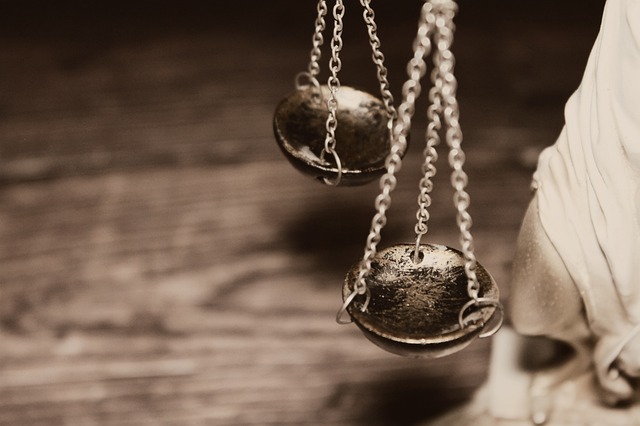Grandparent custody disputes arise when parents cannot or will not care for their children, prompting relatives to advocate for visitation rights. These cases are governed by varying legal frameworks prioritizing the child's best interests while acknowledging grandparents' significant role in their lives. Legal representation is crucial for grandparents seeking custody or visitation, as it helps navigate complex laws, family dynamics, and potential opposition, demonstrating their ability to provide a stable, nurturing environment. The process involves consulting a specialized attorney, filing a petition, presenting evidence, and arguing cases in court, with key factors considered including the grandparent-child bond, parental approval, stability, and the child's emotional well-being. A multi-faceted approach including robust evidence of suitability and legal representation increases the likelihood of a favorable outcome.
In many families, grandparents play a vital role in their grandchildren’s lives. However, when grandparent visitation rights are contested, understanding the legal framework is crucial. This article guides you through the intricacies of grandparent custody disputes, focusing on the legal representation and steps involved. We explore key factors courts consider when deciding on access, emphasizing the importance of evidence and legal counsel. By understanding these aspects, grandparents can navigate the process with confidence and advocate for meaningful time with their loved ones.
- Understanding Grandparent Custody Disputes: Legal Framework and Rights
- Navigating the Process: Steps Involved in Filing for Visitation
- Key Considerations: Factors Courts Use to Determine Grandparent Access
- Supporting Your Case: Evidence, Legal Representation, and Next Steps
Understanding Grandparent Custody Disputes: Legal Framework and Rights

Grandparent custody disputes often arise when a grandchild’s parents, for various reasons, are unable or unwilling to provide care, and relatives step in to advocate for continued relationship and visitation rights. These cases are governed by specific legal frameworks that vary by jurisdiction but generally aim to protect the best interests of the child while recognizing the significant role grandparents can play in their grandchildren’s lives. Grandparents seeking custody or visitation face a series of legal hurdles designed to ensure fairness, stability, and positive impact on the child’s well-being.
Understanding these rights within the context of grandparent custody disputes is crucial. Legal representation is often sought to navigate complex laws, family dynamics, and potential opposition from parents or other relatives. An experienced attorney can help grandparents build a strong case, presenting evidence that demonstrates their ability to provide a stable, nurturing environment for the child, thereby fostering the continuation of meaningful relationships and ensuring the best possible outcomes for all involved parties.
Navigating the Process: Steps Involved in Filing for Visitation

Navigating the legal process for grandparent visitation can be complex, especially in cases involving custody disputes. The first step is to consult with an experienced family law attorney who specializes in grandparent rights. They will guide you through the specific laws and regulations in your jurisdiction, as rules vary significantly across states. This initial consultation is crucial to understand your legal options and the best approach for your situation.
Next, if you believe the child’s well-being is at risk or that the parent refusing visitation has no intention of accommodating grandparent-child bonding time, you can file a petition with the court. This formal request outlines your reasons for seeking visitation, presents any relevant evidence, and requests specific terms for visits. The court will then schedule a hearing, where both sides present their cases. It’s important to prepare thoroughly, gathering documentation, witness statements, and legal precedents that support your position in the grandparent custody dispute.
Key Considerations: Factors Courts Use to Determine Grandparent Access

When courts decide on grandparent visitation rights in a custody dispute, they consider several factors to determine what is in the best interest of the child. These include the quality and frequency of the grandparent-grandchild relationship, the parent’s opposition to or support of visitation, and the impact on the child’s well-being. Additionally, courts may look at the grandparent’s ability to provide a stable and nurturing environment, as well as their willingness to follow established parenting plans and court orders.
Other relevant factors include the child’s age, their preferences (if old enough), and the overall stability of each household involved. The court will also assess the potential for positive or negative effects on the child’s emotional and psychological development. Balancing these considerations helps ensure that grandparent visitation is in alignment with the child’s best interests while navigating complex family dynamics in grandparent custody disputes.
Supporting Your Case: Evidence, Legal Representation, and Next Steps

In grandparent custody disputes, supporting your case requires a multi-faceted approach. Firstly, compile robust evidence to demonstrate your suitability as a caregiver. This includes financial stability, a safe and nurturing environment, and any past experiences in raising children or caring for young relatives. Medical records, references from other family members, and personal character witnesses can all bolster your claim.
Engaging legal representation is crucial in navigating these complex cases. An experienced attorney specializing in family law can help you understand the specific laws regarding grandparent visitation rights in your jurisdiction. They’ll guide you through each step, from gathering relevant documents to negotiating with the other party and, if necessary, presenting your case in court. This ensures your rights are protected and increases the likelihood of a favorable outcome.






